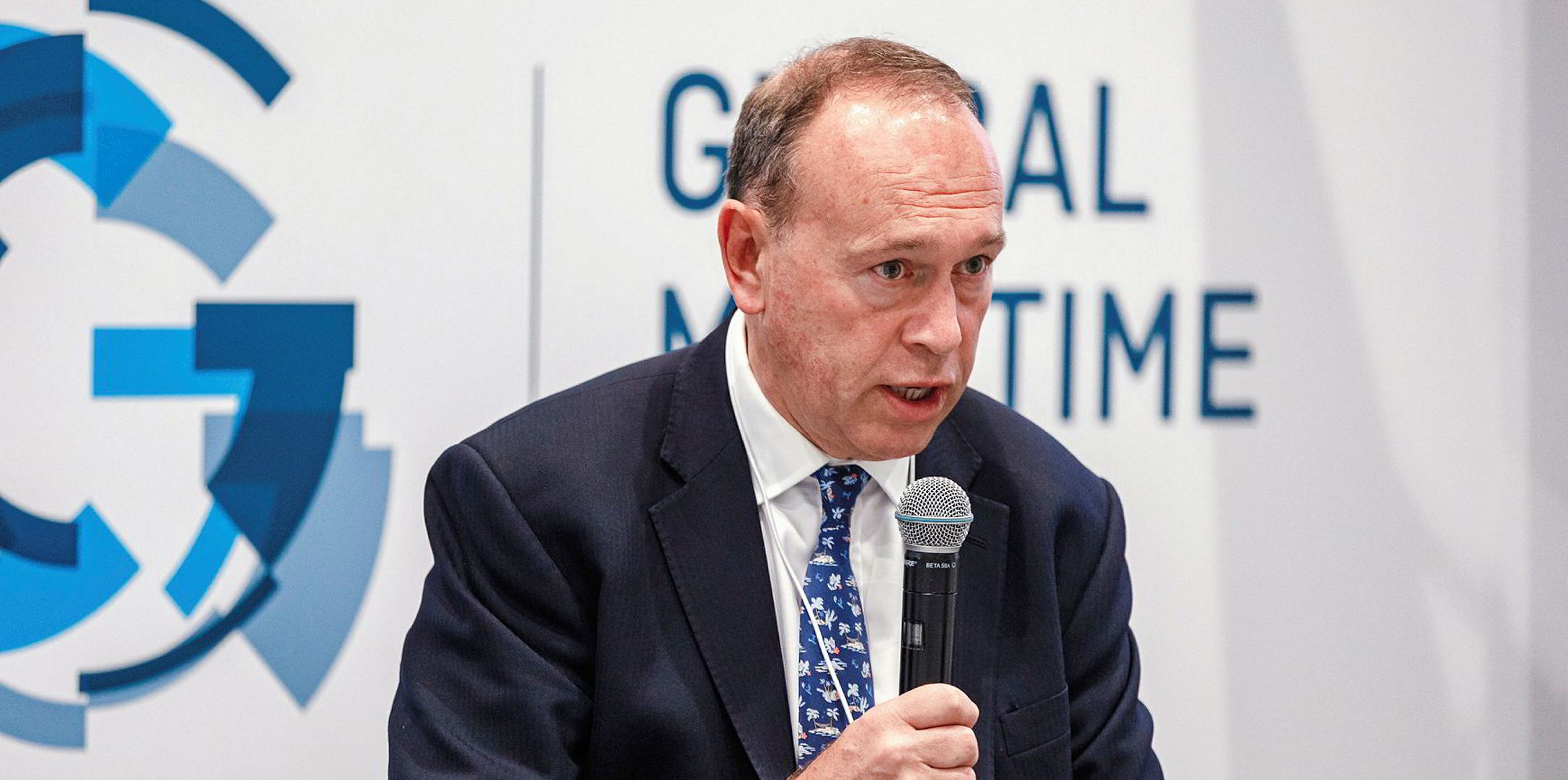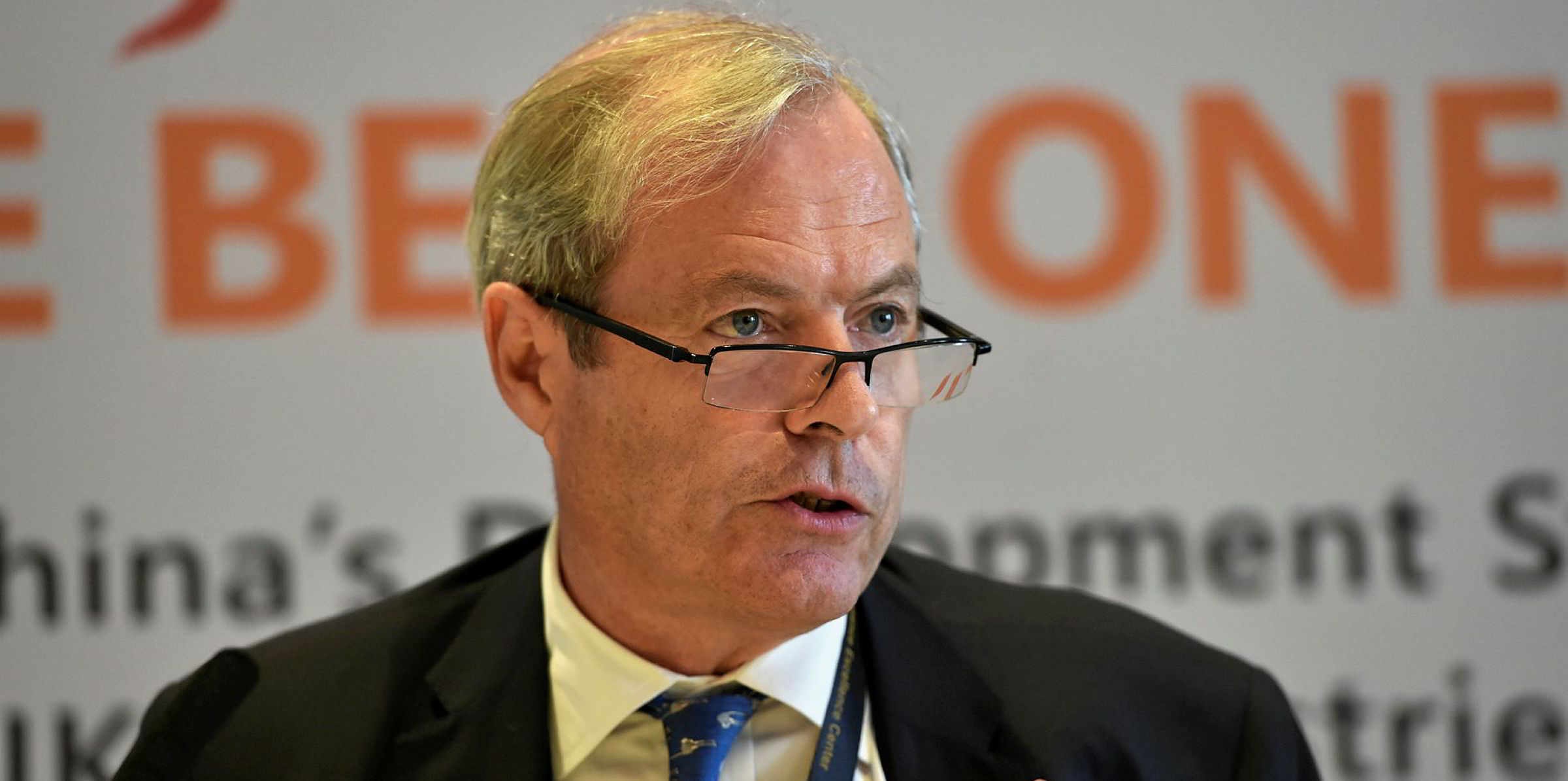Shipping executives fear they are relatively unprepared to deal with the environmental, economic and cyber risks they face in the next decade.
That is the key finding of a global survey of maritime industry leaders conducted for the Global Maritime Forum which starts in Singapore today.
Global economic crisis, decarbonisation, cyber attacks and demands for sustainability topped the lists of issues for which shipping faces both the greatest impact but was the least prepared.
"This is insight into what's keeping people awake at night," said Marcus Baker, global head of marine and cargo at Marsh JLT Specialty, who lead the research.
"Respondents to this year's research are also rightly concerned about their vulnerability to rising geopolitical tensions in certain parts of the world and the increased use of automation and advanced analytical technologies."
Nearly 250 top executives, stakeholders and opinion-formers are in Singapore this week for the Global Maritime Forum, which has become labelled 'shipping's Davos'.
The second annual Global Maritime Issues Monitor was compiled from a survey that was sent to around 7,000 senior maritime stakeholders from 46 countries conducted in May and June this year, including shipowners, charterers, maritime services, governments, academics and media.
They were polled on the impact, likelihood and preparedness of key 18 issues and and asked about the industry's specific priorities.
As in the 2018 report, the risk of a global economic crisis showed the greatest divergence between impact and likelihood. While it was only ranked as the 10th most likely event in the next decade, its potential impact put it at number one.
In contrast, decarbonisation ranked second in potential impact but eighth for likelihood in the next 10 years.
Peter Stokes, chair of the Global Maritime Forum and a senior advisor at Lazard, said important environmental initiatives are on senior leaders' radar, with new legislation thought most likely in the next 10 years, and carrying the third biggest impact.
"Worryingly, they perceive the maritime industry as relatively unprepared for the issue close to the deadline for the new [IMO 2020] fuel arrangements.
"When it comes to decarbonisation, the maritime sector must play an even larger role in addressing climate change and the sector is a key stakeholder when it comes to both the causes and the solutions related to the issue."
The survey was conducted by Marsh JLT Specialty, the International Union of Marine Insurance in conjunction with the Global Maritime Forum.
Recent attacks by hackers show they can penetrate systems used in the sector, said Baker.
"As an industry, greater collaboriation is needed to assess and model the risks surrouding new technologies and evolving risks.
"We need to learn from best practice in other sectors, if we are to successfuly adapt and thrive in the face of new threats."
Responses to several issues shifted in this year's second survey, with more confidence shown this year that there is adequate access to finance than in 2018.
Michael Parker, chairman, global shipping and logistics at Citi, said the upturn in confidence could be traced to three main factors.
Excess capacity is being absorbed giving a better outlook for investors, bank distress is near completion with those that remain being clearer and more competitive, while environmental, social and governance issues making everyone realise scale and financial strengh is essential.
"For those companies that can manage through these more complex issues, finance will be forthcoming, and that is why one can see renewed confidence in access to finance from that type of industry participant," said Parker.
"For small and medium-sized owners, access is there through some banks and alternative lenders, though at a price."
A major safety incident would have more impact this year than in 2018, the survey found. Alastair Marsh, chief executive of Lloyd's Register, said more analysis and modelling around the risks of new technologies was needed.
"We could equally benefit from looking at other sectors, such as aviation, to see how they have managed the risks associated with rapidly changing technology," Marsh said.
Isabelle Durant, deputy secretary general of the UN Conference on Trade and Development, said: "We are convinced that public opinion and demand for environmental concerns and sustainability will only increase in the future, critically influencing the parameters for maritime transport."
She continued: "Our oceans and seas constitute a major environmental public good, which holda special place in hearts and minds, as well as the livelihoods, of people across many different societies and cultures.
"These are challenging times, but certainly interesting ones."






